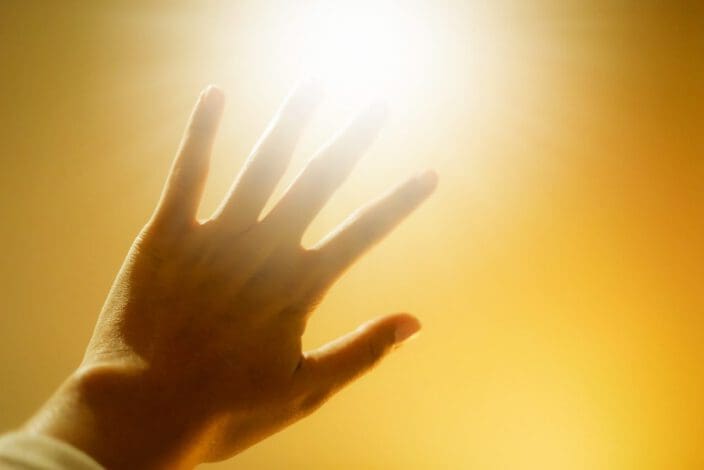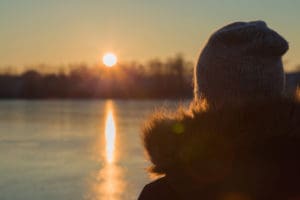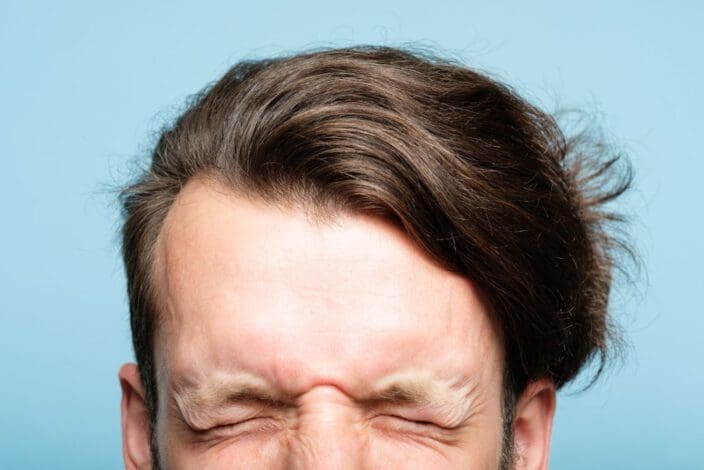Eye Damage From Solar Eclipses: Why it Happens (& Prevention)
Home / Vision Education Center /
Last Updated:
Why Is It Dangerous to Look at a Solar Eclipse?

Solar eclipses are exciting and rare events. They often lead large numbers of people to go against medical advice and stare directly at the sun to try and better see the cosmic phenomenon. Despite any apparent darkness, or arguably because of it, the sun remains quite dangerous to vision during a solar eclipse.
So, why is it dangerous to look at a solar eclipse? The biggest risk you expose yourself to if you stare at the sun during a solar eclipse is retinopathy. This is when solar radiation damages the retinas. The effects of retinopathy become noticeable after 4 to 6 hours, but they may take as long as 12 hours to appear for some people.
There is no treatment for solar retinopathy, but you should always see an ophthalmologist for vision problems to make sure the cause is indeed what you think it is. Many people will recover from retinopathy in three to six months, but permanent damage in the form of visual blind spots or distortions is not unheard of.
Table of Contents
Looking at a solar eclipse is dangerous for the eyes. It can cause a condition called solar retinopathy, which is when solar radiation damages the eyes. It can even lead to permanent blind spots or distortions in your vision.
This damage occurs when people underestimate the sun, thinking that an eclipse blocks enough of its light for it to be safe to look at. In reality, solar radiation remains dangerous during an eclipse.
Some people think they don’t need glasses or other lenses specifically designed to look at an eclipse, instead using sunglasses or even nothing at all. These are dangerous misconceptions. You should always use proper eyewear if you want to look at an eclipse.
Always make sure you and those around you know how to safely use the glasses. Children are especially at risk for improperly looking at an eclipse.
How Does a Solar Eclipse Damage the Eyes?

Most solar eclipses are partial solar eclipses. As the name implies, a partial solar eclipse occurs when the moon does not completely cover the sun. At no point is it safe to look directly at such an eclipse without eye protection.
The reason you should not look at the sun even when it is partially obscured is solar radiation. Your eye uses a lens, the retina, to see. Much like a magnifying glass, the lens can focus the powerful rays of the sun, doing serious damage to the mechanisms of your eye. Even when partially obscured, the light of the sun is still very much able to hurt your sight.
You deserve clear vision. We can help.
With 135+ locations and over 2.5 million procedures performed, our board-certified eye surgeons deliver results you can trust.
Your journey to better vision starts here.
There is one period during the other type of solar eclipse, a total solar eclipse, where looking at it without protection is safe. This is because, by its nature, a total solar eclipse does indeed involve the moon totally blocking the sun’s direct rays for a period of about one to two minutes. However, if you intend to look at this type of eclipse directly, it is still wise to use protection.
If you intend to risk looking, make sure to research ahead of time the proper way to do so. The eclipse is still dangerous to look at for most of the event.
Common Misconceptions About Solar Eclipse Damage
Some common misconceptions about solar eclipses include:
- Dark sunglasses, homemade filters, and cheap eclipse glasses are fine for viewing an eclipse. Any glasses that do not follow the ISO 12312-2 international standard (a safety standard meant for products intended to look at the sun) are likely to leak dangerous light into your eyes if you stare at the sun. Only use specialized glasses from reputable sources to watch an eclipse.
- Eclipse glasses do not have a shelf life and can easily be reused. Scratches, cracks, or tears in glasses meant to protect you from an eclipse can render the product useless. Any product that has even mild damage on the lenses should not be trusted to protect you from the sun.
- Eclipses do not last long enough to do lasting damage to your eyes. This is simply not true. Staring at the sun for even brief periods risks permanent damage, and eclipses last for minutes, which is plenty of time for the sun to do serious damage.

Preventing Damage From a Solar Eclipse
To prevent damage from a solar eclipse, use proper protection. Even if you are going to view a total solar eclipse, it is better to be safe and use eye protection than to accidentally expose yourself to dangerous rays by looking at the eclipse at the wrong time.
Make sure your eye protection is properly made and from a reputable source. Obscure, cheap products may even claim to follow ISO 12312-2 when they do not.
While eclipse glasses that are older are not necessarily useless, they should be thoroughly inspected before being used again. If the product is older than three years, it should not be used.
To protect young children and anyone who is unfamiliar with safe practices, make sure to explain how to properly use the protective glasses and confirm the rules are followed. The glasses should be worn at all times when looking at the sun, and any instructions provided by the manufacturers should be followed.
You deserve clear vision. We can help.
With 135+ locations and over 2.5 million procedures performed, our board-certified eye surgeons deliver results you can trust.
Your journey to better vision starts here.
References
- NASA Recommends Safety Tips to View the August Solar Eclipse. (August 2, 2017). NASA.
- Solar Eclipse Eye Safety. (July 27, 2018). American Academy of Ophthalmology.
- The Sun, UV Radiation and Your Eyes. (August 28, 2014). American Academy of Ophthalmology.
- Think You Hurt Your Eyes Watching the Eclipse? (August 22, 2017). American Academy of Ophthalmology.
- Eye Safety During a Total Solar Eclipse. (August 21, 2017). NASA.
- How the Sun Can Burn Your Retina in Seconds (Video). (August 7, 2017). American Academy of Ophthalmology.
- ISO 12312-2:2015. (June 2015). International Organization for Standardization.
This content is for informational purposes only. It may have been reviewed by a licensed physician, but is not intended to serve as a substitute for professional medical advice. Always consult your healthcare provider with any health concerns. For more, read our Privacy Policy and Editorial Policy.

